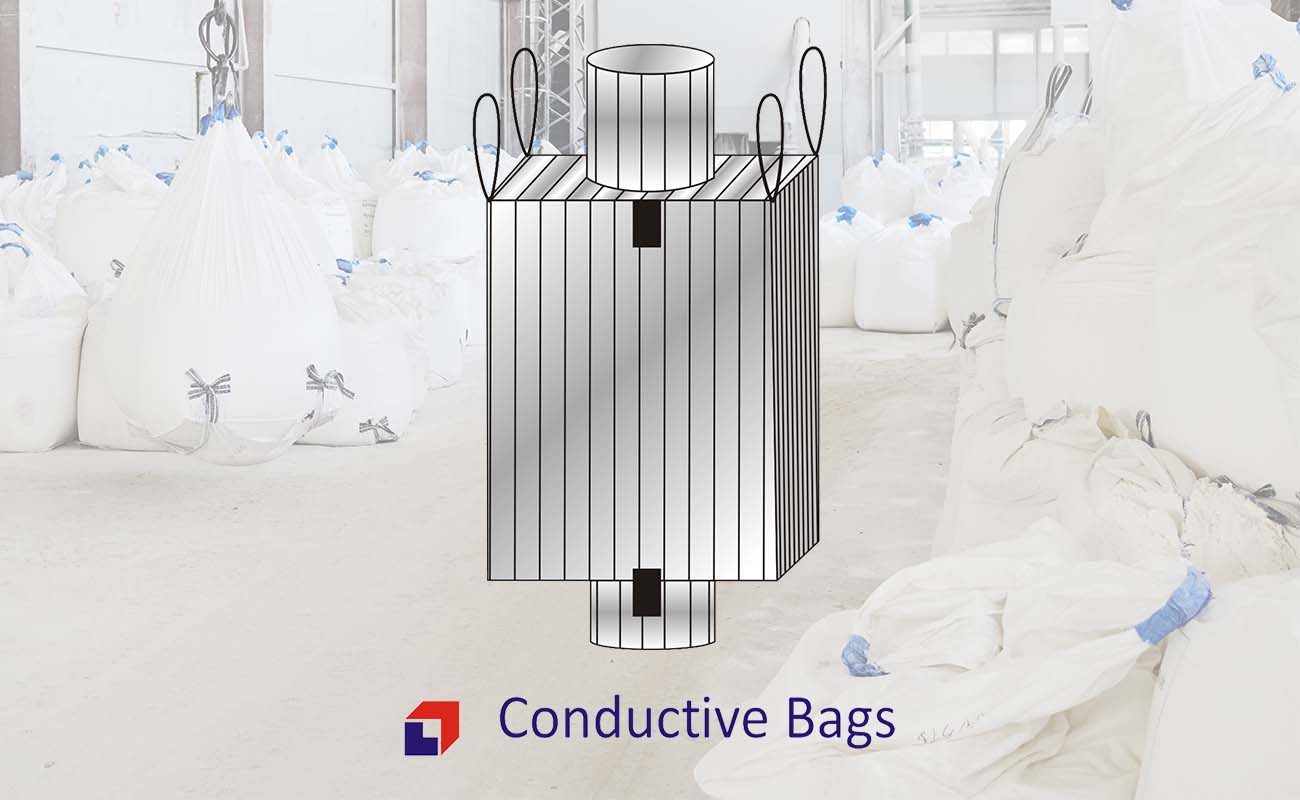Type C FIBC – Rishi FIBC
FIBC or Flexible Intermediate Bulk Container is a bulk bag constituted of flexible fabric. FIBC bags serve as industrial containers to store and transport dry and flowing materials like sand, fertilizer, granules of plastic, etc.
Need for Type C FIBC
Industrial material handling or transportation occurs in bulk and hence FIBC are extensively used. As FIBC bags are made up of polypropylene there exists a possibility that while speedy filling or emptying takes place, there is a built-up of electrostatic charges on the inner walls of FIBC. Electrostatic charges form on the surface of materials that are in close contact and are being separated. They hold the potential to ignite combustion if the surrounding environment is hazardous because of the presence of highly inflammable material. To mitigate such risks, Type C FIBC is used.
A Type C FIBC is nothing but a conductive jumbo bag that is made using conductive film tapes to ground the electrostatic charge that might have developed during the emptying or filling process. These bags are used in industries where the atmosphere is likely to contain explosive content which can be ignited due to the presence of electrostatic charges.
Properties of Type C FIBC Bags
The configuration of bags is done with suitably grounded interwoven conductive threads along with non-conductive polypropylene fabrics. The sewing of the bags is done in a grid pattern. A grounding point is made available on the bag that allows the bag to connect to the ground and safely dispose of the accumulated static charges. Static charges developing during filling or emptying are safely passed onto the ground. The potential of discharges is nil. To do away with grounding faults, FIBC Type C comes armed with conductive loops that establish contact with a hoist system that provides safe passage of charges to the ground.
The breakdown voltage is within 6kV. The bags can be safely used in an environment replete with combustible dust, flammable vapors, or gases having ignition energy levels greater than or equal to 0.14mJ.
Safety precautions
Type C FIBC bags are custom-made to meet the needs of the industries. One has to keep in mind that the process of interconnecting and grounding the container can suffer from inadvertent human errors, just like any other manual operation. Before using them, you need to ensure that the ground connection is present and it has not been damaged. If unavailable or damaged, the bags should not be used. The bags are primarily used for safe transportation of flammable powders and as such even if flammable solvents or gases are present surrounding the bag, the safety quotient is high.
When the minimum ignition energy of dust is greater than 1000 mega Joules and less than or equal to 3 megajoules, Type C bags can be used in non-flammable, explosive dust and explosive gas or vapor atmospheres.
Type C FIBC dissipates static electricity, keeps away brush discharges, and prevents sparks/ PBDs. The one thing you need to keep in mind is that you should ground the FIBC properly. Just a little carefulness on your part assures long-term safety.
At Rishi FIBC Solutions you can place an order for customized high-quality Type C bags. Rishi FIBC Solutions Pvt Ltd is an export-oriented undertaking offering a wide range of FIBC bags to suit the varying needs of the industry.






